June 20, 2025 | 18:12 GMT +7
June 20, 2025 | 18:12 GMT +7
Hotline: 0913.378.918
June 20, 2025 | 18:12 GMT +7
Hotline: 0913.378.918
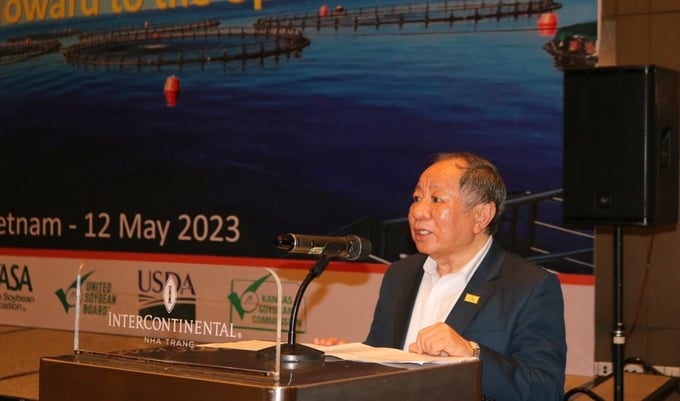
Assoc. Prof. Dr. Nguyen Huu Dung, Chairman of the Vietnam Seaculture Association, said that traditional mariculture had caused environmental consequences. Photo: KS.
On May 12, in Nha Trang City (Khanh Hoa), the Vietnam Seaculture Association, in collaboration with the Khanh Hoa Department of Agriculture and Rural Development and the US Soybean Export Council, held a seminar on "The Era of offshore Mariculture".
Assoc. Prof. Dr. Nguyen Huu Dung, Chairman of the Vietnam Seaculture Association, said that recently, mariculture has been interested in development by the Party and State. After the Central Resolution on sustainable development of the maritime economy, the Government has issued many decisions and decrees related to policies and regulations on marine economic development, including mariculture.
According to Assoc. Prof. Dr. Nguyen Huu Dung, we have been conducting mariculture for over 20 years, but mainly along the coast in coves, bays, and enclosed water areas. However, traditional mariculture's strong and excessive development has caused undue environmental consequences, causing righteous damage to the community.
Faced with the above situations, Mr. Dung said that our country must gradually move to offshore mariculture with the industrial mariculture model. On the side of the sea culture association, since its establishment in 2016 until now, together with localities, businesses, and fishermen, they have conducted many activities related to promoting mariculture. This is the 10th conference organized by the association in Khanh Hoa on mariculture.
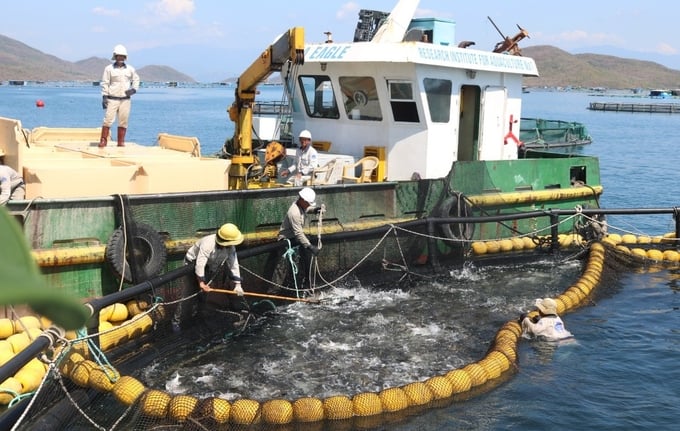
Model of mariculture on an industrial scale in Van Phong Bay, Khanh Hoa province. Photo: KS.
Through this seminar, the President of the Vietnam Seaculture Association believes that the international experiences presented at the workshop will help us have a closer, fresher, and more comprehensive look at the transfer of traditional culture systems to offshore mariculture in the form of industry; Also, grasp global farmed seafood trade trends and sustainability standards in the seafood supply chain.
Rob Garrison, aquaculture expert at NewSeas LLC (USA), an aquaculture development company focused on scaling up sustainable aquaculture, said that for the success of marine cage aquaculture, it is essential to calculate revenue with investment costs, operating costs, and recoverability.
Therefore, when businesses want to invest, they must consider aquaculture for export while serving the domestic market is challenging. Farmed species should be thought of first as local species.
According to Rob Garrison's experience, choosing species that have been proven effective is advisable, and those that have not been raised for success are uncertain. In addition, the selection of breeding sites also needs to be far away from sources of pollution, to facilitate the supply of food, stable seed, quality, and processing of post-harvest products.
In addition, the supply of equipment, cages, and labor for mariculture must also be convenient and abundant. When developing mariculture, paying attention to the weather and climate is necessary to calculate the appropriate season to prevent damage. In particular, applying mechanization and technology in mariculture is also very important to reduce post-harvest losses, lower production costs, and increase profits.
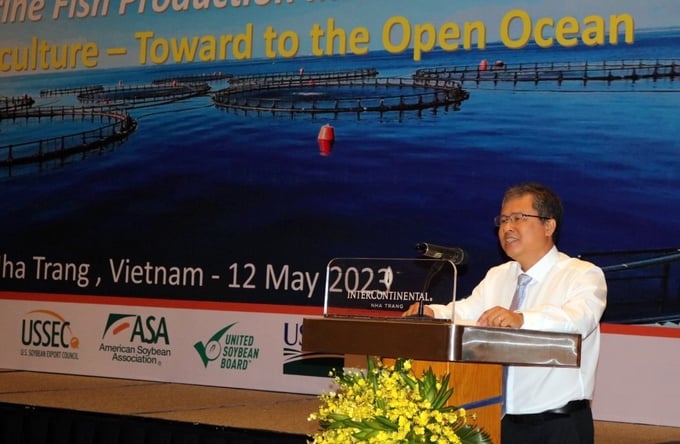
Mr. Tran Hoa Nam, Vice Chairman of Khanh Hoa Provincial People's Committee, called on enterprises to invest in mariculture with modern technology. Photo: KS.
At the seminar, Khanh Hoa Provincial People's Committee called on the Vietnam Seaculture Association, scientists, and domestic and foreign businesses to pay attention and accompany the province in supporting, linking, and investing in building mariculture models using advanced technology, modern techniques (mariculture with HDPE plastic cages), auxiliary equipment technology for mariculture.
Since then, the mariculture industry has gradually developed in the direction of modern commodity production, ensuring food safety and hygiene, protecting the ecological environment, and adapting to climate change in current conditions, bringing economic benefits for aquaculture households and businesses while contributing to the economic development of the province.
According to Mr. Tran Hoa Nam, on January 28, 2022, the Politburo issued Resolution No. 09-NQ/TW on the construction and development of Khanh Hoa until 2030, with a vision to 2045 in which the orientation "Development" vigorously develop the marine economy in the direction of aquaculture, exploitation, and processing of seafood, incredibly high-tech and environmentally friendly mariculture.
Therefore, Khanh Hoa province focuses on developing a pilot project to develop high-tech mariculture to develop the province's aquaculture according to modern, large-scale industrial farming methods...
The project's specific goal is that by 2030, the mariculture area will reach 1,500ha, the cage volume will reach 4 million m3; aquaculture production will get 30,000 tons. Of which, mariculture is within three nautical miles (coastal) of 800 ha, the volume of cages of 2.5 million m3; the output of 12,000 tons, and from 3 to 6 nautical miles (offshore) of 700ha, cage volume of 1.5 million m3; production of 18,000 tons. Total export turnover will get more than US$ 1 billion.
Translated by Ha Phuc
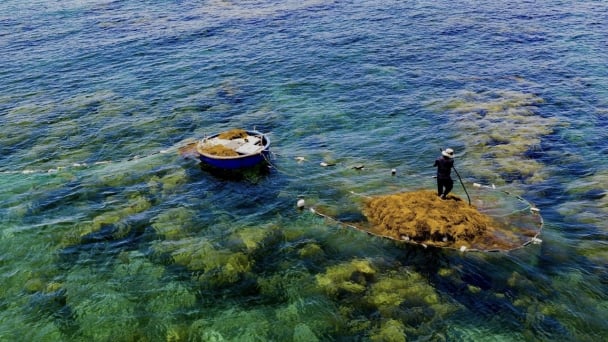
(VAN) With international assistance, the harvesting of sargassum seaweed in Quang Ngai has become increasingly regulated, thereby safeguarding marine life and ensuring the stability of coastal communities' livelihoods.
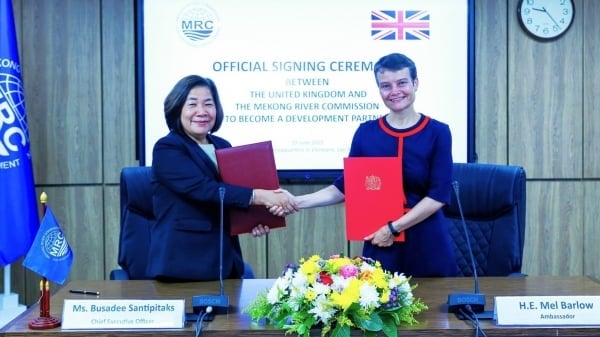
(VAN) On June 19, the United Kingdom officially became a Development Partner of the Mekong River Commission.

(VAN) Biodiversity is being threatened by traditional remedies made from wildlife. Traditional medicine and humans must change to live in harmony with nature.

(VAN) Agrifood investment and finance solutions for people and the planet.

(VAN) Microplastic contamination has become pervasive in seafood, posing unprecedented challenges for food safety and marine ecosystems.
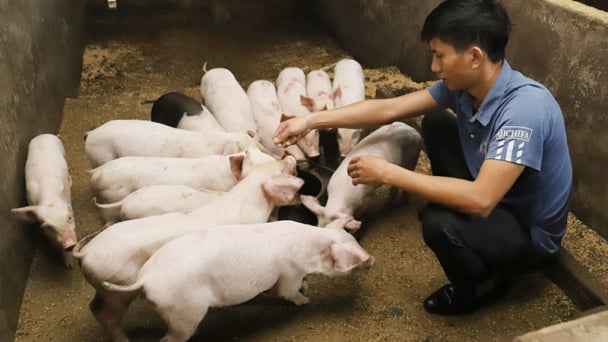
(VAN) Proactively using vaccines, combined with transport control and enhanced surveillance, is the only viable path toward biosecure and sustainable livestock production in Vietnam.
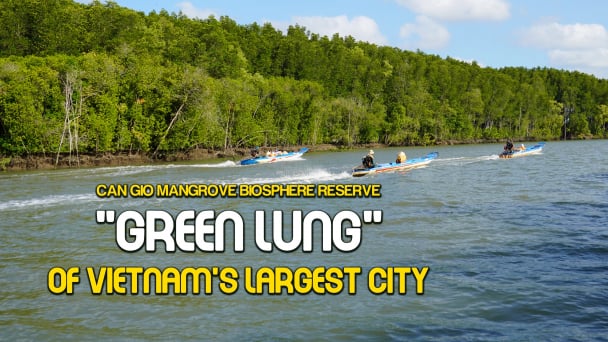
(VAN) Located in the southeast of Ho Chi Minh City, the Can Gio Mangrove Biosphere Reserve is considered the ‘green lung,’ a solid shield protecting the city.